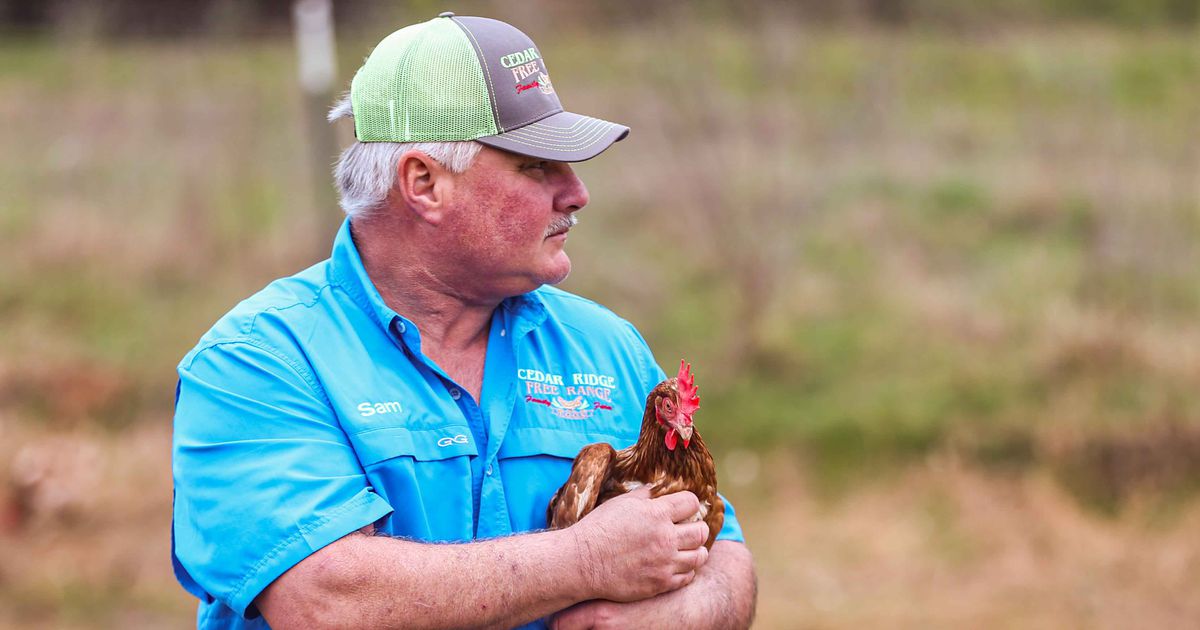 John LaRose Jr.
John LaRose Jr.
Topics: Pesticides, Economics, Pest Control, Research, Ag Europe, Government / Policies,
From locusts to fires, agriculture faces growing threats: UN
The increasing frequency and severity of natural disasters ranging from massive fires to locust invasions is putting food production systems at risk, the UN warned Thursday.
-
(0)
-
Bookmark
- Comments (0)
 John LaRose Jr.
John LaRose Jr.
Topics: Jobs, Agriculture Global, Government / Policies, Coronavirus/COVID,
DAR chief gets real, says agriculture is 'our only hope for survival' during pandemic
Department of Agrarian Reform (DAR) Secretary John R. Castriciones has declared agriculture as the “cornerstone of the country’s survival” against the coronavirus disease (COVID-19), especially with the current upsurge in active cases.
-
(1)
-
Bookmark
- Comments (1)
 JAMES MSASA
JAMES MSASA
Topics: Government / Policies,
Rest easy our Tanzanian Hero and President of United republic of Tanzania, It's a big loss for African not only Tanzanian
Breaking News: President John Pombe Magufuli has died
Tanzania’s President Dr John Pombe Magufuli has died at the age of 61, the Vice President Samia Suluhu Hassan has announced.
-
(0)
-
Bookmark
- Comments (0)
 John LaRose Jr.
John LaRose Jr.
Topics: Precision AG , Agriculture Global, Research, Ag Tech, Ag Innovation, Government / Policies, World Population, Regenerative Agriculture,
NASA Astronauts Will 'Fuel' Plants on Mars With Space Station-Born Bacteria
NASA helped discover three new bacteria species on the ISS! They will help us grow food in space.
-
(0)
-
Bookmark
- Comments (0)
03/13/2021 SOURCE: www.google.com
More than a year after two U.S. Department of Agriculture research agencies were moved from the nation’s capital to Kansas City, Missouri, they remain critically understaffed and some farmers are less confident in the work they produce
USDA relocations curtail ag research, farmer confidence
-
(0)
-
Bookmark
- Comments. (0)
 John LaRose Jr.
John LaRose Jr.
Topics: Conservation/Tillage, Water, Government / Policies, Ag Australia/NZ,
Coastal water capture plan a sensible move says landholders.
A new vision updating coastal water harvest rights in NSW is under discussion until April 18.
-
(0)
-
Bookmark
- Comments (0)
03/12/2021 SOURCE: www.agri-pulse.com
In this opinion piece, Whit Fosburgh with the Theodore Roosevelt Conservation Partnership discusses the diminished purchasing power of Farm Bill conservation programs and what the sportsmen’s community is planning to do about it.
Opinion: The diminished purchasing power of farm bill conservation programs holds America back
-
(0)
-
Bookmark
- Comments. (0)
03/12/2021 SOURCE: www.dallasnews.com
After the snow storm hit Texas last month, Sam Miller and his family thought they managed to get through the worst of it unscathed. Their family egg farm...
‘We’re going to lose everything:’ Texas egg farm still waiting on federal aid after winter storm
-
(0)
-
Bookmark
- Comments. (0)
03/11/2021 SOURCE: www.newsdakota.com
(NAFB) – Legislation introduced in both the House and Senate would eliminate the estate tax. The 2017 Tax Cuts and Jobs Act temporarily doubles the estate tax exemption to $11 million per person indexed for inflation through
Farm Groups Welcome Death Tax Repeal Legislation
-
(0)
-
Bookmark
- Comments. (0)
 Randy Krotz
Randy Krotz
Topics: Agriculture US, Government / Policies, Climate Change, Sugar Beets,
Markwart: Climate change to be key issue for agriculture in Biden Administration | Agweek
One of the Biden Administration's major policy issues will be climate change. Agriculture will be a key part in the Administration's push to lessen the country's carbon footprint.
-
(0)
-
Bookmark
- Comments (0)












